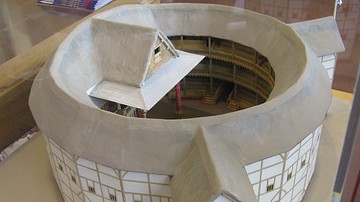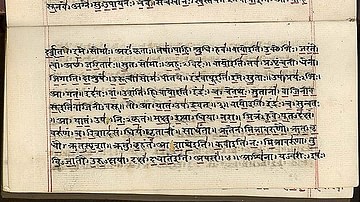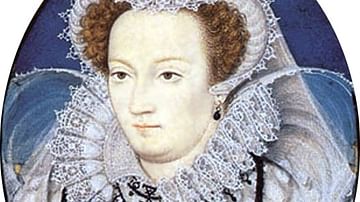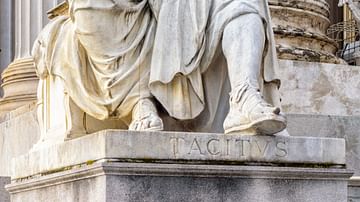Search Definitions
Browse Content (p. 116)

Definition
Elizabethan Theatre
Elizabethan theatre, sometimes called English Renaissance theatre, refers to that style of performance plays which blossomed during the reign of Elizabeth I of England (r. 1558-1603) and which continued under her Stuart successors. Elizabethan...

Definition
Upanishads
The Upanishads are the philosophical-religious texts of Hinduism (also known as Sanatan Dharma meaning “Eternal Order” or “Eternal Path”) which develop and explain the fundamental tenets of the religion. The name is translated as to “sit...

Definition
William Cecil, Lord Burghley
William Cecil, 1st Baron Burghley (1520-1598 CE) was Elizabeth I of England's most important minister for much of her reign (1558-1603 CE). Lord Burghley was Secretary of State for both Edward VI of England (r. 1547-1553 CE) and Elizabeth...

Definition
The Vedas
The Vedas are the religious texts which inform the religion of Hinduism (also known as Sanatan Dharma meaning “Eternal Order” or “Eternal Path”). The term veda means “knowledge” in that they are thought to contain the fundamental knowledge...

Definition
Robert Dudley, 1st Earl of Leicester
Robert Dudley, 1st Earl of Leicester (l. c. 1532-1588), was a high-ranking courtier who rose to become a favourite of Elizabeth I of England (r. 1558-1603). Rumours abounded that Dudley sought to marry the queen, and their relationship may...

Definition
Hinduism
Hinduism is the oldest religion in the world, originating in Central Asia and the Indus Valley, still practiced in the present day. The term Hinduism is what is known as an exonym (a name given by others to a people, place, or concept) and...

Definition
Ridda Wars
The Ridda Wars or the Wars of Apostasy (632-633 CE) were a series of military engagements between the armies of the Rashidun Caliphate (632-661 CE) and the renegade tribes of Arabia. The rebels had renounced their allegiance with the nascent...

Definition
Mary, Queen of Scots
Mary, Queen of Scots was the queen of both Scotland (r. 1542-1567) and briefly, France (r. 1559-1560). Obliged to flee Scotland, the queen was imprisoned for 19 years by Elizabeth I of England (r. 1558-1603) and finally executed for treason...

Definition
Tacitus
Publius Cornelius Tacitus (l. c. 56 - c. 118 CE) was a Roman historian, active throughout the reign of Trajan (r. 98-117 CE) and the early years of Hadrian (r. 117-138 CE). His best-known works are Histories and Annals, which cover the history...

Definition
Carthage
Carthage was a Phoenician city-state on the coast of North Africa (the site of modern-day Tunis) which, prior the conflict with Rome known as the Punic Wars (264-146 BCE), was the largest, most affluent, and powerful political entity in the...